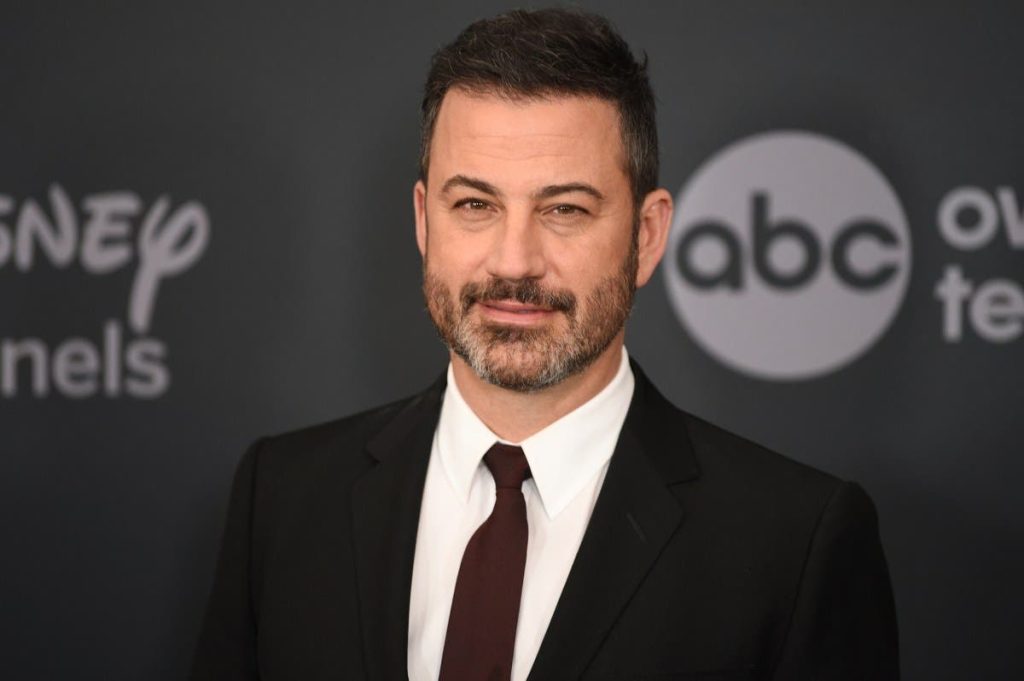Jimmy Kimmel’s Triumphant Return to Late-Night Television After Suspension
In a remarkable television moment, Jimmy Kimmel returned to late-night after a week-long suspension to record-breaking viewership numbers. An astounding 6.26 million viewers tuned in to “Jimmy Kimmel Live!” on Tuesday night, making it the most-watched regular episode in the show’s history and its highest ratings in a decade. This far surpassed the program’s typical audience of 1.42 million viewers. Kimmel’s comeback monologue, which blended sincerity with his trademark humor while addressing the controversy that led to his suspension, resonated far beyond television – generating nearly 26 million views across YouTube and Instagram by the following afternoon. His return wasn’t just a personal vindication but became a cultural flashpoint in the ongoing debate about political satire, free expression, and the boundaries of comedy in America’s increasingly polarized landscape.
The suspension stemmed from comments Kimmel made on September 15th regarding a man accused of assassinating conservative activist Charlie Kirk, which drew fierce criticism and political backlash. After six days of mounting pressure, ABC’s parent company Disney reversed course and brought Kimmel back on air – a decision widely interpreted as defiance against the Trump administration’s pressure tactics. The reinstatement also followed a wave of subscription cancellations to Disney+ and Hulu by fans demanding the host’s return. In his emotional comeback monologue, Kimmel directly addressed the controversy, making it clear he never intended to make light of a young man’s murder. His voice noticeably broke as he defended satire against what he characterized as “bullying” from the administration, while also humorously acknowledging Disney’s business interests by reading scripted lines about how viewers could reactivate their canceled streaming subscriptions.
The extraordinary viewership for Kimmel’s return underscores how political controversy can still galvanize audiences in an era of declining traditional television viewership. For context, late-night ratings have been steadily shrinking across the board, with industry leader Stephen Colbert averaging about 2.42 million viewers in the second quarter of 2025, followed by Kimmel at 1.77 million and Jimmy Fallon at 1.19 million. Even Fox News’ cable program “Gutfeld!” typically draws around 2.2 million nightly viewers. Kimmel’s 6.26 million audience represents a dramatic spike that demonstrates how moments of cultural and political significance can still drive audiences to traditional broadcast television, despite the ongoing industry-wide challenges from cord-cutting and streaming competition. The episode reveals both the enduring power of late-night television when it intersects with politics and the fragility of the format in today’s rapidly evolving media landscape.
However, Kimmel’s return was not without significant distribution challenges. Two major broadcasting groups – Nexstar Media Group and Sinclair Broadcast Group – refused to air the program. Together, these companies own or operate 70 ABC stations covering nearly a quarter of American households, creating viewership gaps in major markets including Seattle, Nashville, Salt Lake City, and Washington, D.C. Both companies stated they are evaluating their future carriage of the show while noting that episodes remain available through streaming platforms. This standoff represents the practical business challenges facing Disney as it navigates the political dimensions of the controversy. Nexstar specifically noted that it is “engaged in productive discussions with executives at The Walt Disney Company, with a focus on ensuring the program reflects and respects the diverse interests of the communities we serve” – corporate language that hints at the delicate balancing act between creative freedom and market considerations.
The controversy extended well beyond entertainment into Washington politics, where FCC Chairman Brendan Carr threatened investigations and possible license revocations for affiliates that aired Kimmel’s program – remarks that prompted Democrats to call for Carr’s resignation and raised concerns even among some Republicans. Senate Majority Leader John Thune, while not directly criticizing Carr or Trump, emphasized that government regulators should not pressure broadcasters and that programming decisions should be left to networks and audiences. During his monologue, Kimmel made a point to speak directly about Erika Kirk, Charlie Kirk’s widow, noting that her ability to forgive the attacker was “an example we should follow” and adding, “If you believe in the teachings of Jesus as I do, there it was. That’s it, a selfless act of grace, forgiveness from a grieving widow, that touched me deeply. And I hope it touches many and if there’s anything we should take from this tragedy to carry forward, I hope it can be that and not this.” This moment of sincerity amid the controversy highlighted Kimmel’s attempt to find common ground even as the political storm swirled around him.
Kimmel’s professional future now hangs in a complex balance of politics, ratings, and corporate risk assessment. Disney executives continue discussions with station groups regarding the show’s distribution while attempting to balance creative independence with political and regulatory concerns. For now, the network appears to be standing firmly behind its star, pointing to the remarkable ratings and massive online engagement as evidence of his value to the brand. However, former President Trump has continued his attacks on Kimmel via his Truth Social platform, labeling him a partisan tool of Democrats and suggesting further action against ABC. The episode represents a microcosm of the larger tensions in American media – how to maintain creative freedom and satire in an environment of intense political pressure, how traditional television can remain relevant in a fragmented media landscape, and how corporations navigate the increasingly difficult terrain between business interests and principles of free expression. As the dust settles, the extraordinary viewership suggests that despite all the controversy – or perhaps because of it – Jimmy Kimmel remains a significant voice in American popular culture, one whose comedy continues to resonate with millions of viewers seeking both entertainment and perspective on our complex political reality.


